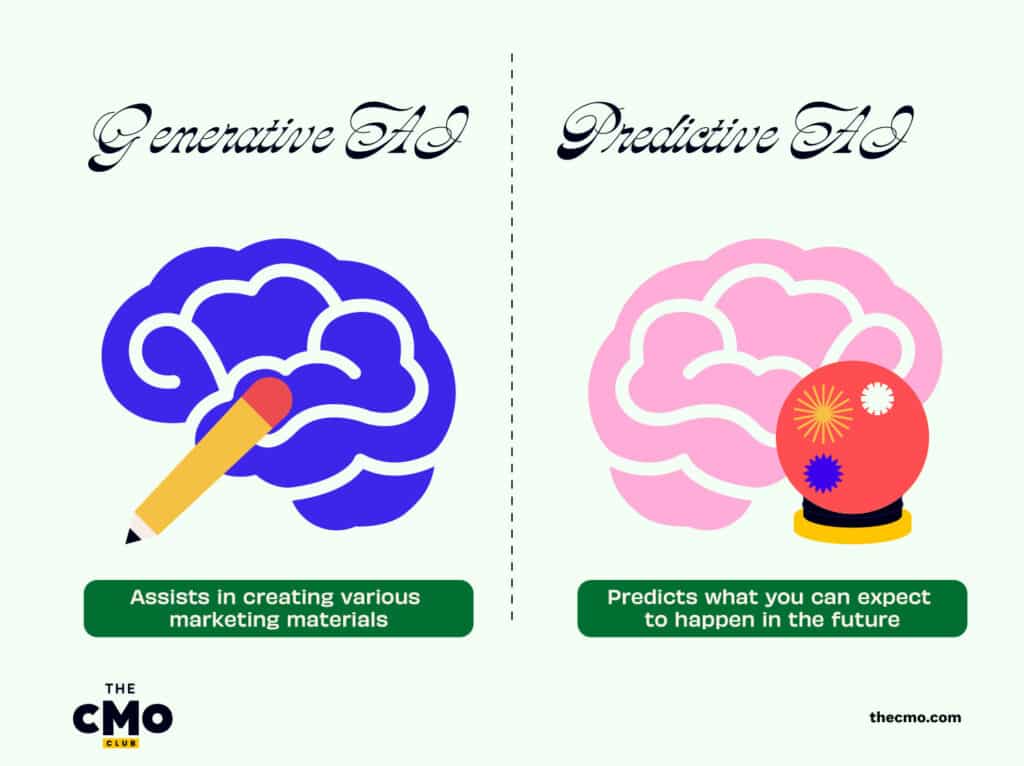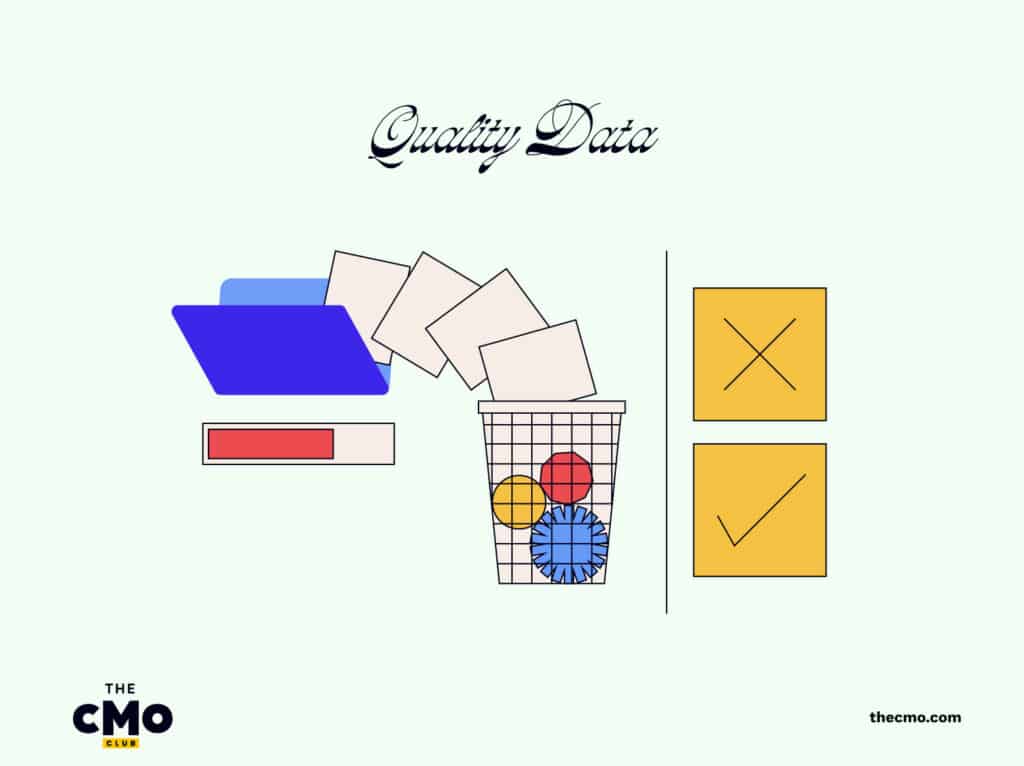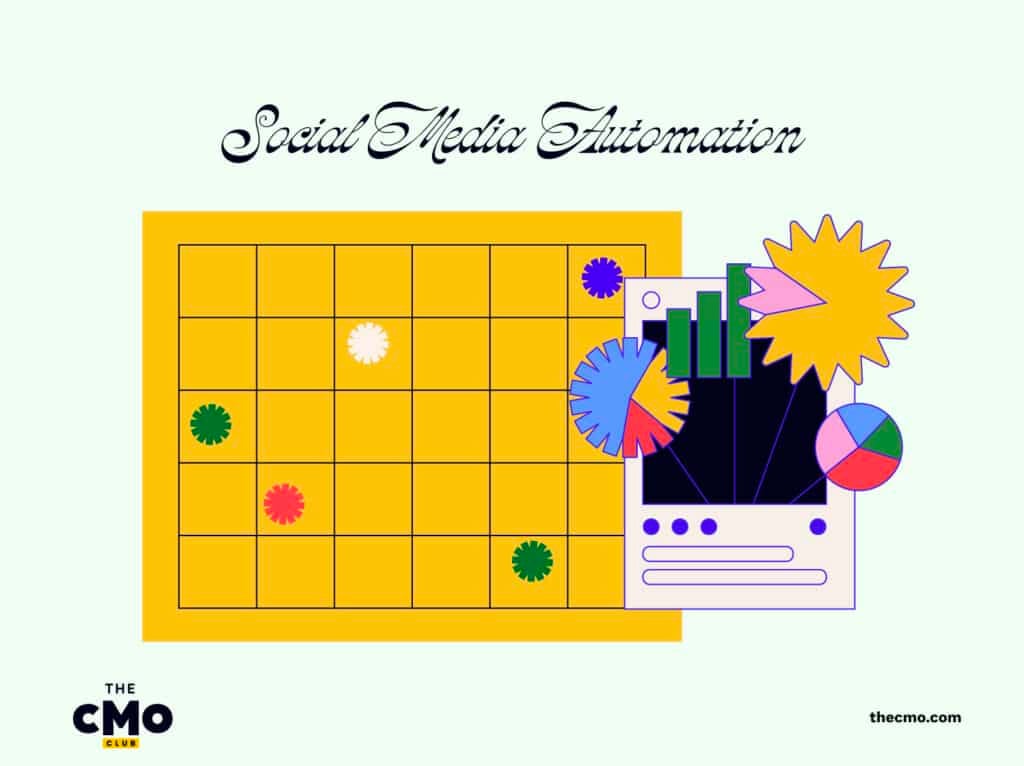Marketing automation is like the Swiss Army knife of the digital marketing world. It consists of exceptional software designed to automate certain aspects of marketing, liberating marketing professionals from the drudgery of busy work so they can focus on what truly matters—return on investment.
It may come as no surprise, then, that the marketing automation software market is booming. These platforms are the secret sauce for scaling business, and as digital landscapes evolve, the value of marketing automation is becoming more evident than ever before. While some marketing departments are already finessing their automation strategies, others are just setting up, recognizing the benefits of increased productivity and streamlined operations.
Wherever you are in the journey, understanding and leveraging the latest marketing automation trends is key to staying ahead and achieving optimal campaign results now and in the future. You likely already know your marketing automation history, so lets' cover what should be top of mind in 2024.
1. Omnichannel Marketing Campaigns
Omnichannel marketing—which involves integrating multiple touchpoints to create a seamless customer experience across various marketing channels and stages of the funnel—continues to be one of the dominant marketing automation trends for 2024. By ensuring consistency across social media platforms, email, and websites, you can enhance brand visibility, improve customer satisfaction, and increase the likelihood of conversions.
By implementing marketing automation tools, you can manage and optimize your campaigns across different platforms, leading to higher efficiency and better results. To build a robust omnichannel approach, it's important that you focus on these four pillars:
- Visibility: Important marketing channels for visibility include social media, email marketing, search engine optimization (SEO), and content marketing. Use marketing automation software to schedule social media posts, automate email drip campaigns, track your rankings, and optimize content.
- Measurement: Track the performance of your campaigns across different channels, providing insights into what works and what doesn't. Tools like Google Analytics, HubSpot, and Marketo can automate the collection and reporting of key metrics, such as click-through rates, conversion rates, and customer lifetime value.
- Personalization: With advanced segmentation features, categorize your audience based on demographics, behavior, purchase history, and more to tailor your messaging to specific groups, ensuring that your content resonates more deeply with each segment. You can also use marketing automation to track user interactions across various touchpoints, enabling you to send personalized emails, product recommendations, and even dynamic website content.
- Optimization: Marketing automation software offers robust analytics and reporting features, enabling you to track campaign performance across all channels in real-time. Integration capabilities with other tools and platforms also mean that you can manage all your marketing efforts from a single dashboard, increasing efficiency and reducing the chances of errors.
2. Personalization
Expanding on the above, personalization is another key marketing automation trend for 2024, with Blogging Wizard reporting that almost 90 percent of companies are investing in it. Today's consumers want to feel like individuals, and personalizing content—from product recommendations to email subject lines—proves that you understand them. Here are a few more examples of ways that marketing professionals use automation for personalization at scale:
- Dynamic website content that changes based on user location
- Personalized email campaigns triggered by past purchase behavior
- Tailored social ads targeting users who have interacted with similar brands
- Customized landing pages that reflect the user's previous site interactions
- Behavioral-triggered messages sent when a shopping cart is abandoned
These days, sophisticated algorithms and artificial intelligence (AI) can empower you to dive deep into consumer behavior patterns by analyzing extensive datasets, and as such, AI's role in personalization makes it another top trend to watch.
3. Generative AI

Generative AI is another significant marketing automation trend for 2024, as tools like ChatGPT and DALL-E have made enormous waves since their release in late 2022. These tools assist in creating various marketing materials, such as email subject lines, blog outlines, and even images for ads and blog headers.
The ability to generate content quickly and efficiently is revolutionizing the way marketers approach content creation, and in 2024, I expect to see an influx of AI-generated images and AI copywriting, further integrating AI into the marketing processes.
As AI continues to evolve, its role in automating creative tasks will expand, making it an indispensable tool for marketers aiming to stay ahead in a competitive digital landscape. Just keep in mind that you don't want AI or your marketing automation tool to take over content creation in its entirety—you'll still want a human involved to review what it creates.
4. Predictive AI
Separate from generative AI, predictive AI is among the biggest marketing automation trends of 2024. Predictive AI analyzes your marketing data and, as the name suggests, predicts what you can expect to happen in the future.
By identifying patterns in previous years and quarters, it can give you estimates of what might happen in future ones. And because it can pick up on things you might not, it’s more effective (and let's be honest, much faster) than trying to make predictions manually.
An AI automation tool can parse through large quantities of data to guess which leads will convert, how much a customer will spend for the coming quarter or year, which customers might drop out of the funnel, and how much your company will earn for the year. As AI becomes more intelligent and more businesses realize the value of predictive AI, especially in combination with a marketing automation software’s quick data processing, its predictive functions will become more widely embraced.
5. Reinforcement & Machine Learning
The reason why AI is able to achieve innovative marketing automation functions is thanks to machine learning, which grows and evolves as the AI receives more data. In 2024 and beyond, machine learning will continue to sharpen AI, helping generative AI feel more human and predictive AI become more accurate.
I'm anticipating that a subset of machine learning known as reinforcement learning will also continue to gain momentum, increasing AI intelligence and making marketing software much smarter. Reinforcement learning allows AI to actually make decisions (like a human), which is highly beneficial as it can lead to sustainable, performance-driven change. It's a pretty cool process, so here's a brief rundown of how reinforcement learning works in AI:
- A digital agent is placed in a specific environment to learn.
- The agent faces game-like situations and must make a series of decisions to achieve the correct outcome.
- Through trial and error, the agent learns what actions to take and what actions to avoid.
- The agent receives rewards for correct actions and punishments for incorrect ones.
- Each reward reinforces the behavior, signaling the agent to use the same tactics in future similar situations.
6. Quality Data

Good quality data (and lots of it!) is essential for evaluating your customer base and campaign success, enabling continuous optimization. However, the process of transferring data between different tools can be time-consuming and prone to human error when done manually.
Businesses increasingly rely on analytics and insights to understand customer behavior, track campaign performance, and identify areas for improvement. They also generate massive amounts of raw data by importing customer contact information, launching and archiving marketing campaigns, generating and storing sales data, and maintaining customer service logs.
Fortunately, digital marketing automation can significantly streamline data management and transfer processes. Companies can already rely on automation for data cleansing, and AI can efficiently handle all steps of data cleanup. This not only saves time but also reduces the likelihood of errors, allowing businesses to focus on leveraging high-quality data for strategic decision-making and optimization.
With the growing importance of data in driving marketing success, the role of automation in managing and analyzing data will continue to expand.
7. Mobile-First Marketing
As mobile devices have become the primary means of communicating with the online world, mobile marketing is expected to be another one topping the list of marketing automation trends. According to Web FX, 54% of all website traffic is generated from mobile phones, placing it above desktop usage. On top of that, in 2024, Insider Intelligence Report anticipates that mobile commerce (also known as "mcommerce") will constitute 40.4% of total ecommerce sales.
With tools like push and web notifications, SMS, mobile wallet, and in-app notifications, marketers will be able to create comprehensive mobile engagement strategies for brands. Automation tools will ensure that these campaigns work cohesively at scale, weaving an intricate web around them to maximize effectiveness and reach.
By staying on top of this trend and leveraging these tools, you'll be able to streamline your mobile marketing efforts, ensuring that every touchpoint is optimized for engagement and conversion.
8. Conversational Chatbots
Chatbots have already begun to make their mark, and in 2024 they'll play an even bigger role in helping businesses enhance customer service and engagement. With chatbots, you can automate customer interactions and answer questions without lifting a finger, saving precious time.
As Forbes recently pointed out, conversational marketing is the future of direct marketing because it shows that businesses care about their customers’ needs. With conversational marketing, chatbots can conduct personalized conversations with customers and even operate 24/7, ensuring continuous customer engagement even when you're away from the office.
The best conversational AI chatbots use a combination of natural language processing (NLP), natural language understanding (NLU), and natural language generation (NLG) for conversational responses and solutions. Here are some examples of conversations that chatbots can handle:
- Answering frequently asked questions
- Providing product recommendations
- Assisting with order tracking and status updates
- Scheduling appointments or reservations
- Offering customer support and troubleshooting
- Collecting customer feedback and reviews
9. Social Media Automation

Automated social media marketing and social shopping have been around for some time, but their popularity is only increasing as we continue through 2024. Social media usage continues to grow, with the number of global users rising from 4.72 billion in January 2023 to 5.04 billion in January 2024, according to Smart Insights. Data shows that of marketers who implemented automation, 76% saw positive ROI within a year, and 80% reported a boost in lead generation as a result.
Automated social media marketing allows you to create posts weeks in advance and schedule them to publish at specific dates and times. This not only saves time (check out some of these real-life marketing automation case studies for proof) but also ensures consistent and timely engagement with your audience. As social media continues to evolve, leveraging these automation tools will be essential for maintaining a robust online presence and maximizing marketing efforts.
10. Email Drip Campaigns
Last but not least, email marketing automation continues to be a leading marketing technology trend, particularly with the use of email drip campaigns. These campaigns involve setting up specific emails to be sent to users based on their actions or at predetermined times following those actions. This strategic approach ensures that your audience receives timely and relevant content, enhancing engagement and conversion rates.
When it comes to email marketing, AI-driven personalization is making significant strides. It dynamically adjusts content based on real-time user interactions, allowing for a more tailored and impactful communication strategy. By leveraging AI, you will be able to deliver highly personalized experiences that resonate with your audience, ultimately driving better results and fostering stronger customer relationships.
The Best Marketing Automation Tools
I hope I've generated some excitement around what can be accomplished with marketing automation software, and if so, you're probably wondering how to choose the right software for you. Here I've put together my list of preferred recommendations and their best use cases to help you out.
Note that depending on the platform, marketing automation pricing can vary greatly. Really consider which features you need to accomplish your goals, and how many users on your team will need access. Then, negotiate!
Once you have the tool you want, make sure you follow marketing automation best practices so you get the most out of your chosen platform.
Join For More Marketing Automation Insights
Trends are constantly shifting, but it’s clear the landscape is rich with opportunities for marketing professionals to connect with audiences in more meaningful ways. Here are the key takeaways:
- Omnichannel marketing, empowered by marketing automation tools, aims to deliver a seamless customer experience across multiple platforms like email, social media, and mobile apps.
- AI and machine learning are transforming marketing by enabling hyper-personalized content, predictive analytics, and more responsive marketing campaigns, leading to improved customer engagement and loyalty.
- Mobile marketing automation and social media automation are increasingly crucial as more customers spend time on their phones, with tech like push notifications and chatbots enhancing engagement and customer service.
Embracing these trends requires a blend of strategic vision, technological savvy, and a willingness to innovate. As marketing automation continues to evolve, those who master its tools and trends will find themselves leading the pack, delivering personalized customer experiences that not only meet but exceed expectations. The question is, will you be one of those leaders?
To stay in the loop and get the best marketing automation content straight to your inbox, be sure to subscribe to The CMO newsletter.
Frequently Asked Questions
What is marketing automation and why is it important?
Marketing automation is important because it streamlines marketing processes, improves efficiency, and allows businesses to effectively manage a larger number of leads and customer interactions without increasing marketing expenses. It combines technology, strategy, and creativity to enhance customer engagement.
How does omnichannel marketing benefit from marketing automation?
Omnichannel marketing benefits from marketing automation as it integrates marketing efforts across channels, providing a seamless customer experience and helping manage campaigns and analyze data. This ensures messages reach the right audience at the right time.
Can AI in marketing automation improve customer engagement?
Yes, AI in marketing automation can improve customer engagement by personalizing content, optimizing campaigns in real-time, and providing predictive insights to anticipate and meet customer needs more effectively.
Why is mobile marketing automation important?
Mobile marketing automation is important because it allows businesses to engage their audience on mobile devices through personalized promotions and communications, such as push notifications, in-app ads, and SMS, which are crucial for capturing the attention of mobile users.
What role does CRM integration play in marketing automation?
CRM integration is essential in marketing automation as it provides a complete view of the customer journey, enabling targeted messaging and better decision-making based on customer behavior. It also allows for personalized messaging and advanced analytical analysis.


